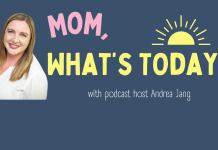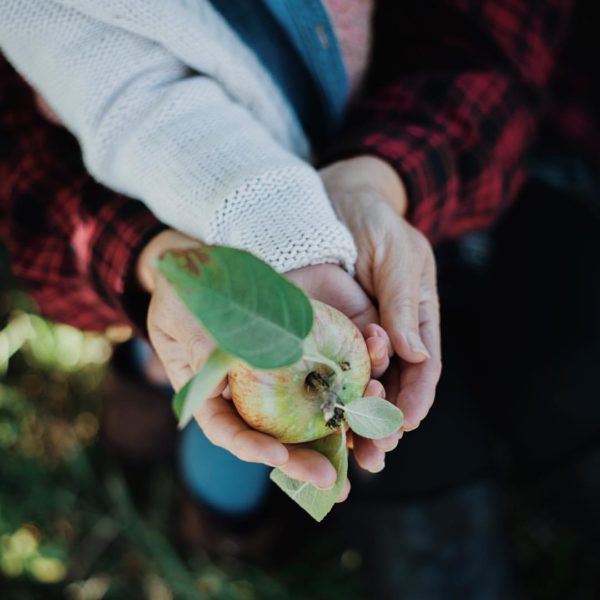Two years ago, our autistic middle son, Gus, rode his bike off of our normal path. He moved very quickly. We lost him. My husband jumped on his bike and rode the surrounding blocks yelling for him but we had to call local police to help us find him. He was found three quarters of a mile from our home. He had crossed several city blocks and a highway before an older gentleman stopped him and took him in the clinic for help. He was gone for less than 10 minutes, but it felt like hours.
 A few weeks before this incident happened, I had a feeling that something like this was possible with Gus. I took Gus (and our other two kids) to meet the chief of police in our town. They took a picture of Gus and created a small write up for squad cars on how to approach him so as not to scare him. We had a plan in place on what to do if Gus got lost. Gus also had an emergency response bracelet on the day he got lost. He did not know to show it to the people that found him, and it was not as obvious as one may think (my error). But these were all resources and ideas that I had to come up with on my own. I had spent countless hours researching how best to keep him safe because I knew it was a critical part of raising a child with an elopement risk.
A few weeks before this incident happened, I had a feeling that something like this was possible with Gus. I took Gus (and our other two kids) to meet the chief of police in our town. They took a picture of Gus and created a small write up for squad cars on how to approach him so as not to scare him. We had a plan in place on what to do if Gus got lost. Gus also had an emergency response bracelet on the day he got lost. He did not know to show it to the people that found him, and it was not as obvious as one may think (my error). But these were all resources and ideas that I had to come up with on my own. I had spent countless hours researching how best to keep him safe because I knew it was a critical part of raising a child with an elopement risk.
This incident of Gus getting lost became a catalyst. I dove deep into research on resources in the Twin Ports and surrounding areas that could be of benefit for Gus and for other children/families in similar situations. I self-reported to the county. Not to be punitive but to bring attention to the fact that we had an autistic child locally who needed more assistance. Our county gave some suggestions on next steps and further resources for Gus. And from there? Off to Google I went again to see what else I could find. Below are the resources we have used as well as a few that we investigated.
1. Joibit GPS Locator: This is a GPS locator that clips to a child’s clothing. It has multiple ways to lock on to them so they are not able to take it off. It is small–about the size of a half dollar. It syncs through an app on our phones. We can set perimeters and safe places (our home, daycare, school, etc.). If Gus goes outside of the perimeter, it will alert us via our phones. It also has a notification when he arrives at a safe place and when he leaves a safe place. I can pull it up from anywhere and see where he is at all times. I can also add multiple people to his “care team” and they will have access to his profile and receive the same alerts I get once they download the app. There is also another form of GPS locator called Angelsense that seems a bit bigger and is a bit more expensive. The reviews are phenomenal for this locator as well. I don’t think you could go wrong with either one.
2. Children’s Therapeutic Support and Services: CTSS focuses on the child’s functionality in the community and the family. This was so very important to us because of Gus’s elopement risk. Our amazing CTSS worker has helped Gus build skills such as emotional regulation, awareness of his surroundings, communication with others, calm down techniques, and the list goes on an on. This is a service available through the Human Development Center in Duluth. They have offices in Duluth, Two Harbors, Cloquet, and Superior. HDC offers many other services such as behavioral therapy and counseling.

3. Amberwing Center for Youth and Family Wellbeing: Amberwing has quickly become one of our favorite places to go for behavioral therapy. Their team of therapists (including psychology, occupational therapy, psychiatry, drug and alcohol treatment, intensive day programs, and more) have been a very valuable service in our family. Gus currently sees a psychologist and occupational therapist there. They work on his sensory issues and motor planning in OT and more intensive skills and emotional regulation with the psychologist. He also follows up with a psychiatrist who helps to manage his medications. The most amazing part of his therapy here is how they involve the family. The level of thought and education that goes into teaching not only Gus, but also my husband and I on how to manage him at home, has been astounding.
4. Pediatric Developmental Medicine: We doctor through Essentia so many providers we have used are Essentia network-based. We started with Developmental Medicine before Gus moved to a psychiatrist. This was prior to his autism diagnosis. A developmental behavioral pediatrician is a pediatrician with advanced training in the physical, emotional, behavioral and social development of children. Dr. Schultz is amazing and so helpful when starting down the path of “maybe my child isn’t developing at the same rate or on the same path as a neurotypical kid.”
5. Pediatric Integrative Medicine: Integrative medicine is a holistic approach to health care. They treat a wide variety of medical illnesses. We used them to supplement our western medicine approach to behavior management. This included diet changes, supplements, and acupuncture (for those old enough to receive it). They also treat adults and I have used them myself for acupuncture and supplemental health.
6. The last, but possibly the best place to start is with your county of residence. Usually they have mental health case managers to help you navigate resources in your county. You can start with each county here: St. Louis, Carlton, Lake, Douglas.
Ultimately, and regardless of the needs of your children, you are their best advocate. If you feel they need more assistance research, research, and research some more.
I can not tell you how many blog posts, medical journals, and websites I have visited over the years. Take what you read and find the balance. Apply what sounds like it may help and know that you are doing your best to take care of your child.
Additional Resources: We have doctored with Essentia for many years but St. Luke’s also has very qualified providers and I would encourage all to research, visit, and take time at both facilities. Find a provider that fits best with your family and your individual needs when it comes to pediatric or family medicine, mental health clinics, or mental health resources in general.










